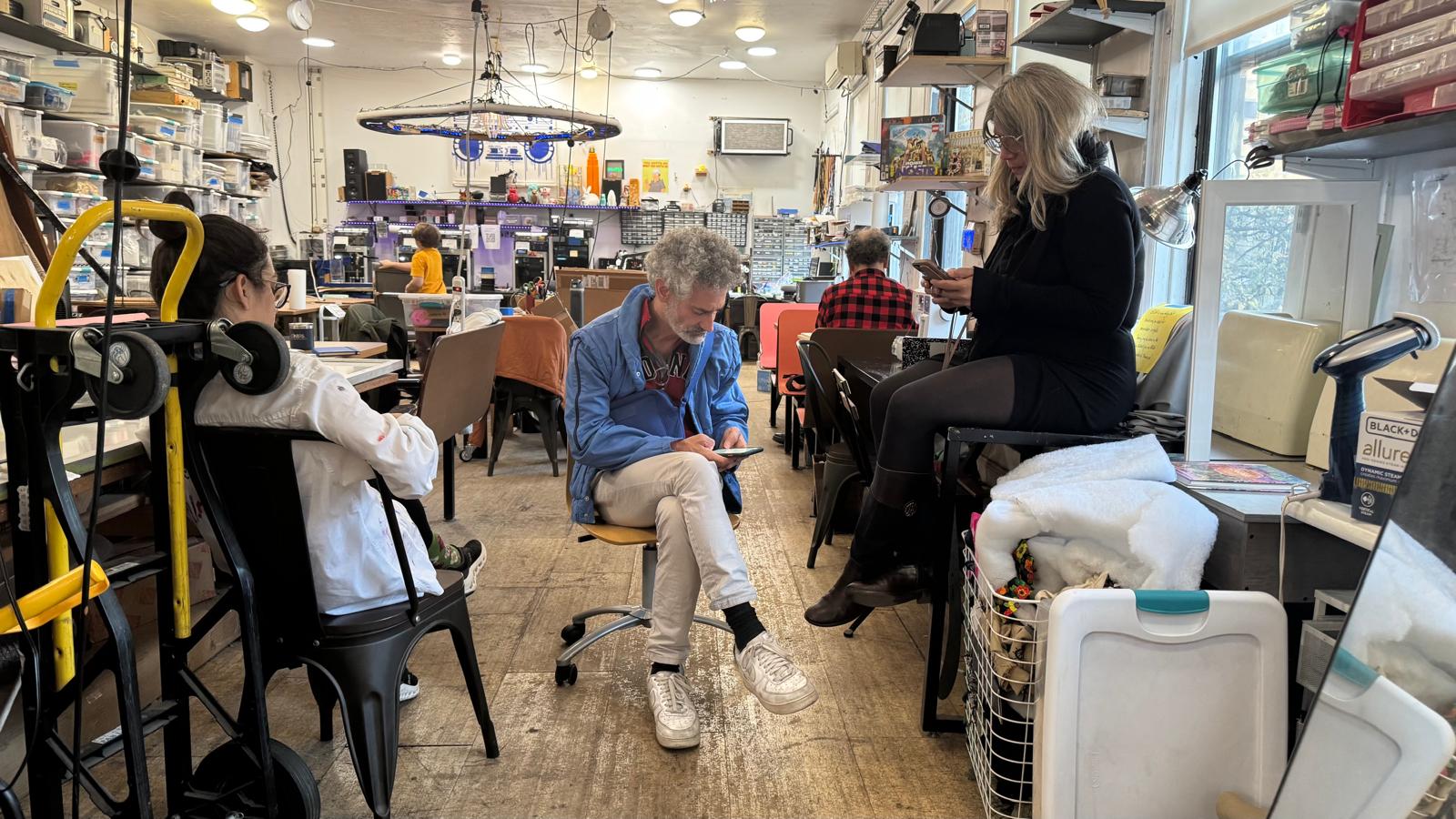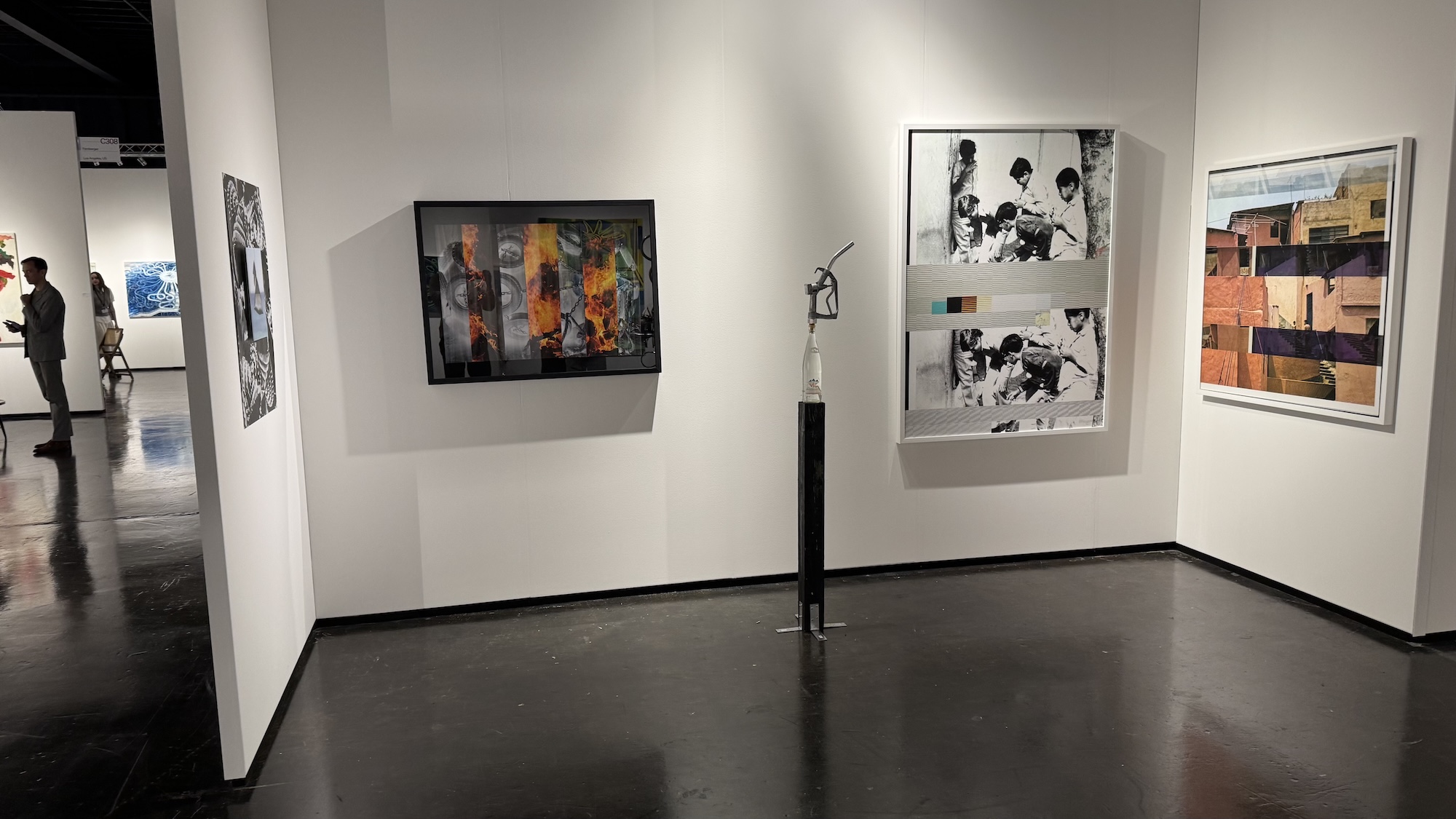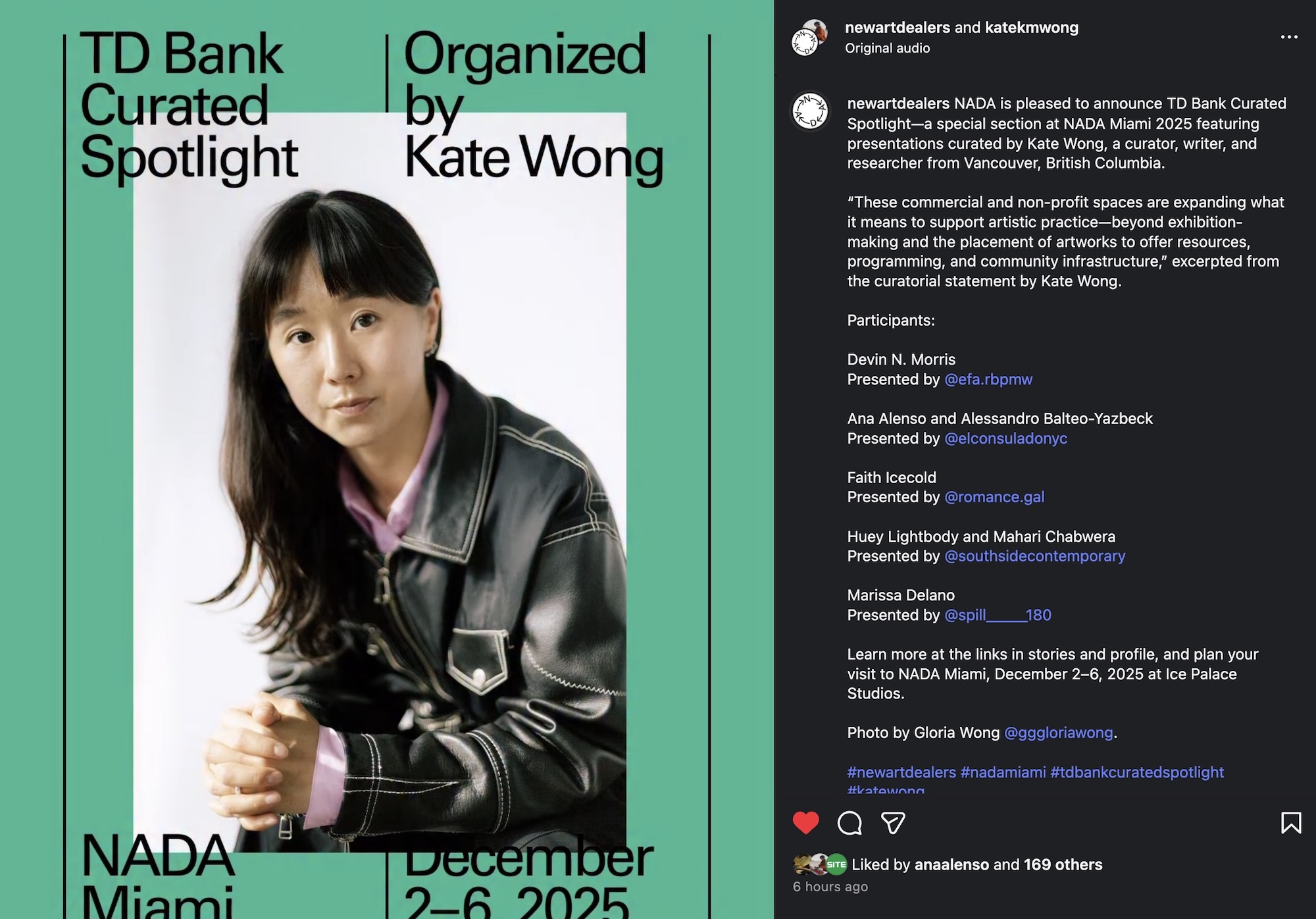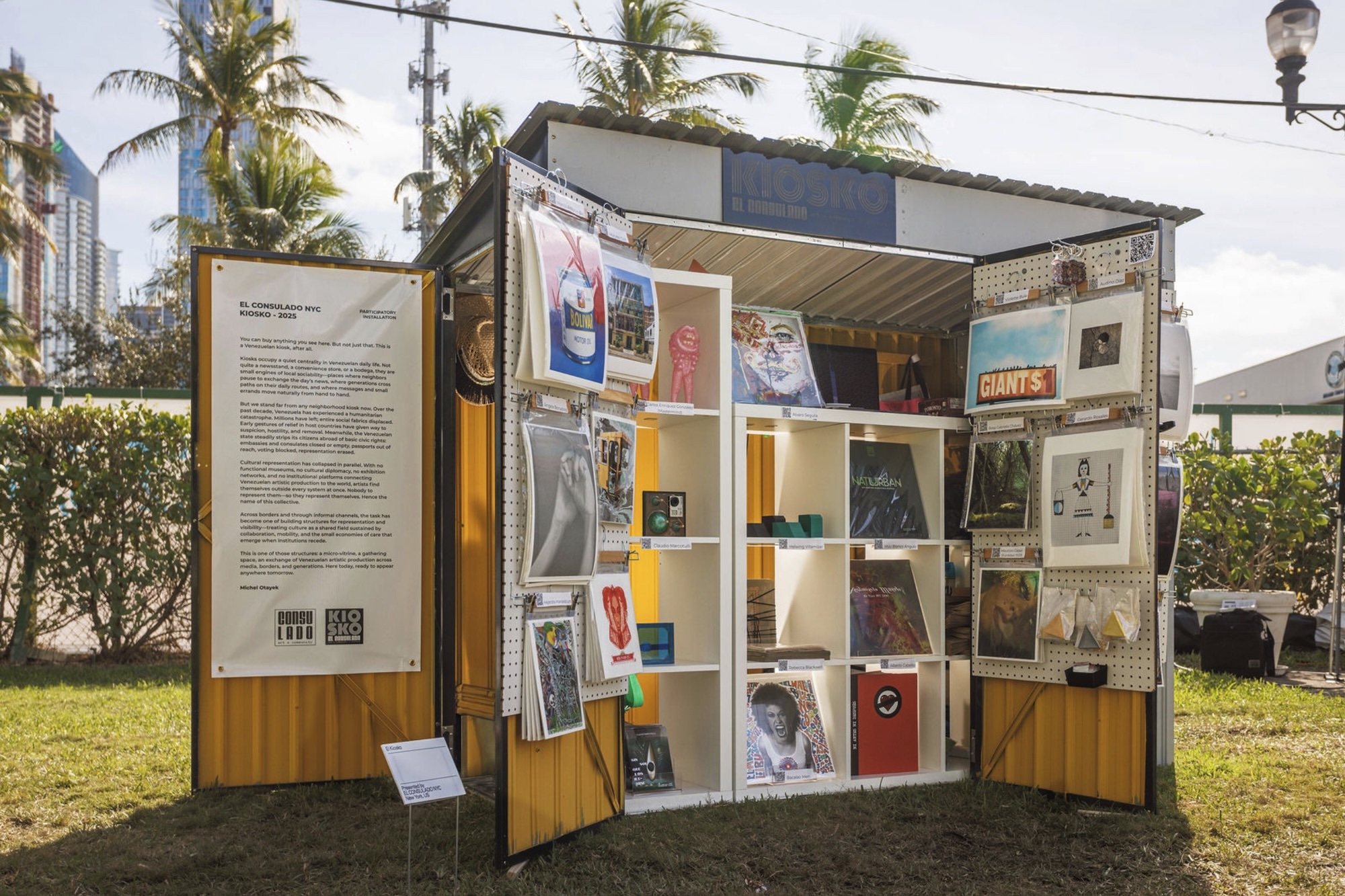On a street on Manhattan’s Upper East Side, where there was once no trace of Latin American art, today stands “The Consulate,” a living installation created by the Pachanga NYC collective. It’s no ordinary consulate: here there are no stamps, passports, or paperwork, but rather the cries of crickets, tropical colors, art, projectors with stories, and a community that recognizes itself in shared memories.
“We had conversations about wanting, in some way, a space to showcase Venezuelan art and culture, but also to collaborate. And given the lack of a consular office we have, we knew this was necessary,” said Alejandra Mandelblum, one of the founding artists. Since 2017, Venezuelans in the United States have not had formal diplomatic services due to political issues between the two countries.
Leonard Zelig, filmmaker and co-founder of the project, recalls how the absence of a structure representing Venezuelan artists was an impetus to create:
“Any migrant artist, especially here in New York, has an embassy, a consulate, a machinery that represents them. Here, migrant artists from all countries have their groups, their mega-consulates and embassies that send them all over the world. That doesn’t happen to Venezuelans here.”
The opening of El Consulado was emotional. Not only because of the art on display, but also because of the sounds that struck a deep chord with many in attendance.
“One of the gifts of the space is that we realize from the moment we walk in that there’s background music. We put on the crickets, and it was almost imperceptible. But you walked in and realized it after a while. Two people started crying just remembering what Caracas used to sound like,” said architect Frahydel Falczuk, who also participated in the creation of El Consulado.
Unlike a static gallery, El Consulado is constantly evolving. From video art screenings to open workshops and spontaneous gatherings, the space grows and transforms every week.
“It’s been like opening a portal. Artists in Venezuela, trendy artists, a Venezuelan artist in Paris. It’s enriching for those of us here and for those of us there,” commented Loló Bello, a multidisciplinary artist and co-founder.
The path to building El Consulado began with a public call from the ChaShaMa organization, which offers temporary spaces for artists in New York.
“We created the application. It took a really long time because these things are hard work, but the truth is that the work we all already had was what really helped make the application secure. When you read it, it was like, ‘This proposal is perfect. Who can say no to this?’” Zelig recalled.
When they finally received confirmation, they had only weeks to settle in. On April 2, they walked into the empty space for the first time: there were only two plastic chairs and a folding table. But the transformation was immediate.
“We were so ready for this. It was the perfect time, the perfect group, with the necessary skills and prior experience. We had a well-rounded, executable concept and the tools to put it all together from scratch,” Bello said.
Although the majority of the audience has been Venezuelan, the project has also attracted local residents, Latinos of other nationalities, and curious visitors who pass by and stay.
“We tell them, ‘Welcome to your consulate,’ and the artists take it that way. They come, they help, they stay, and they’re already part of a different circle,” Bello added.
The lack of institutional representation has also generated a clear stance on the value of creating from one’s own experience:
“People tell us that it’s clear that this space was conceived by us, that there’s no American or European filter. It’s something delivered by people who come from a place where they have a need,” Zelig noted.
The Pachanga team is made up of multidisciplinary artists: filmmakers, muralists, designers, and educators. All of them, in some way, teach or have taught, and all share the conviction that art can be a refuge, a driving force, and a home.
“It’s like a trip down memory lane, not so much to the country itself, but to what it was, to how we grew up. And with that creative energy, we move forward,” Mandelblum reflected.
Although the physical space, located at 1161 First Avenue, is scheduled to close in June, the concept doesn’t end there.
“Even though we no longer have the space, we’re going to keep the idea alive. The consulate can be a happening on the street, a partnership with another venue, a performance on the beach. It will always be a meeting point,” Zelig added.
The original text of this article was published by El Diario NY.



